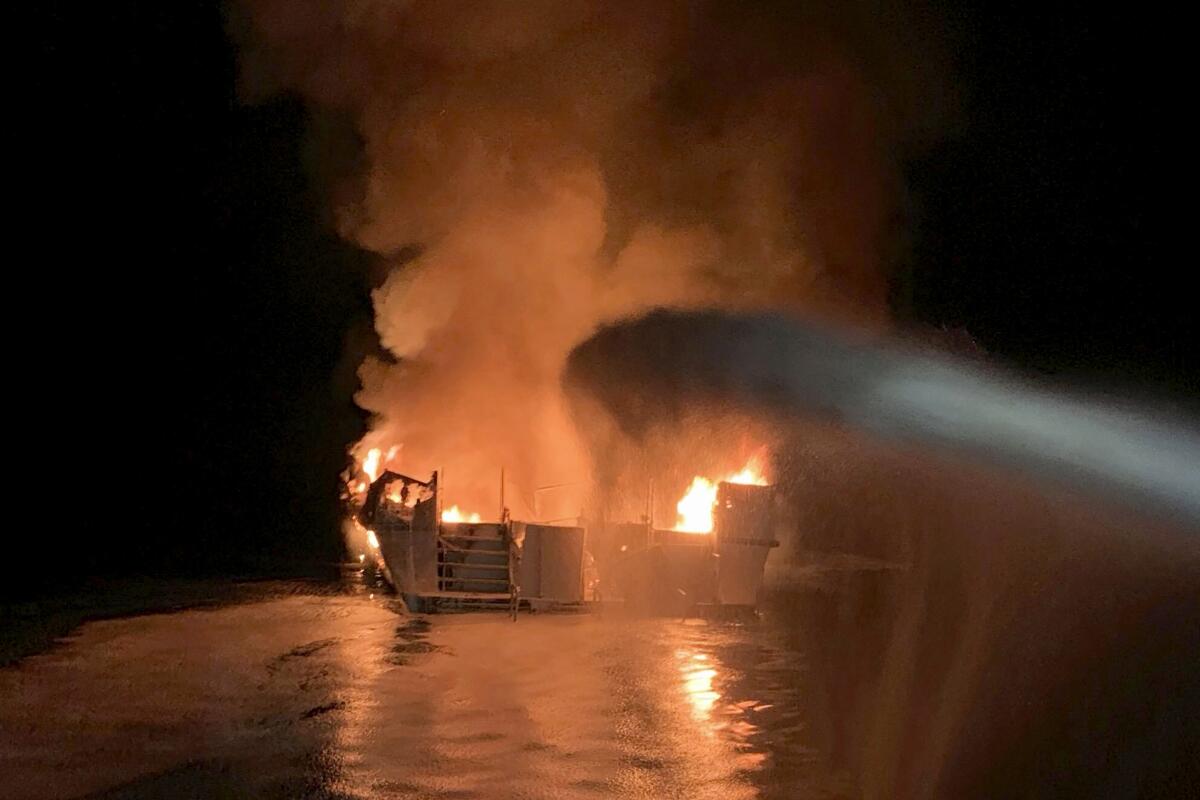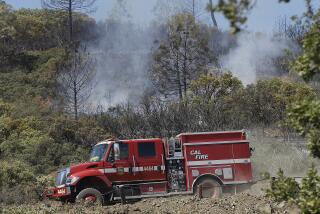Trial set for dive boat captain in California’s worst modern maritime disaster

- Share via
The captain of the Conception dive boat, which caught fire and sank off the California coast more than three years ago, leaving 34 people dead, will face trial next month, according to authorities.
Jerry Nehl Boylan, 68, pleaded not guilty Thursday to a charge of misconduct or neglect of a ship officer, said Thom Mrozek, a spokesperson for the U.S. attorney’s office for the Central District of California. He was released on bond after the hearing.
A trial date was set for December, Mrozek said.
The Sept. 2, 2019, fire on the Conception killed 33 passengers and one crew member who were trapped below deck. The incident was California’s worst modern maritime disaster.
In October, a new federal indictment reinstated the charge against Boylan a month after a federal judge dismissed a previous indictment because prosecutors used “negligence” instead of “gross negligence” in their presentation to the grand jury.
U.S. District Judge George Wu’s decision in September to dismiss the previous indictment without prejudice meant federal prosecutors could refile the case but needed to show gross negligence, a much higher standard, to convict the captain.
A one-count indictment alleges that Jerry Boylan, captain of the Conception, was the first crew member to abandon ship and did not try to help those trapped below deck.
Negligence amounts to careless mistakes or breaches of duty. In contrast, gross negligence requires a deliberate and reckless disregard for the safety or lives of others, and it must be wanton and willful.
Though the latter standard is used for common-law manslaughter cases, legal experts said seaman’s manslaughter — as the “misconduct of a ship officer” statute is often known — requires prosecutors to show only simple negligence, or an omission in violation of a standard of care.
In the new indictment, prosecutors said Boylan was responsible for the safety of the boat and those aboard it, but failed to have a night watch or roving patrol, conduct sufficient fire drills and crew training and provide firefighting instructions or directions to crew members after the blaze started, according to the indictment, which also included other accusations of negligent conduct.
The captain was the first crew member to abandon ship while the passengers and a crew member were alive and trapped below deck in the boat’s bunk room, according to the indictment. After abandoning ship, he ordered crew members to follow him “instead of instructing them to fight the fire or engage in other lifesaving activities,” court documents said.
More to Read
Sign up for Essential California
The most important California stories and recommendations in your inbox every morning.
You may occasionally receive promotional content from the Los Angeles Times.












